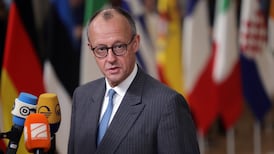A new pilot scheme was launched in the Netherlands this week to remove the legal no man’s land faced by coffee shops that can legally sell cannabis but have to buy their supplies illegally due to there being no other option.
For decades this anomaly has been a stumbling block to cleaning up the image of coffee shops in major cities, particularly Amsterdam. It has meant that outlets have linked to criminal drug producers, undermining their relationships with police and the tax authorities.
For that reason, a long-term aim of the scheme is to sever links between the commercially operated coffee shops – which sell what is generally regarded as a harmless supply of cannabis to customers – and gangland producers who control the trading of harder narcotics.
The pilot scheme has been launched in the cities of Tilburg and Breda, while Amsterdam city council recently proposed that the district of Amsterdam-Oost in the southeast of the capital should also join the trials.
READ MORE
Under the first stage of the plan, coffee shops in Breda and Tilburg will have their cannabis supplied from three official sources, two of which start business immediately, with the third expected to join shortly, according to caretaker minister for health Ernst Kuipers.
During the first six weeks of the scheme, the coffee shops will be able to source the cannabis supplies they need from their current black market suppliers while they are being phased out and the new suppliers are being phased in.
When the four-year wietexperiment (weed experiment) is fully operational, 10 Dutch cities will be involved in addition to Amsterdam-Oost – Tilburg, Breda, Maastricht, Arnhem, Nijmegen, Zaanstad, Groningen, Heerlen, Almere and Hellevoetsluis – transforming the landscape of consumption.
The scheme has proved to be a controversial topic in the run-up to the November general election to replace outgoing prime minister Mark Rutte’s four-party centre-right coalition.
Both Mr Rutte’s Liberal party, or VVD, and the farmers’ protest party, BBB, want the project put on hold until a new government develops a policy on how “soft” drugs should be managed.
The Christian Democrats and Christian Union are both opposed in principle to the legalisation of cannabis cafes.
[ Amsterdam is going downhill for cyclists, survey saysOpens in new window ]
There is also criticism, including from the industry, that successive governments have failed to take action since the mid-1970s when the coffee shops first emerged – and that inaction has allowed criminality and lack of quality control to get a grip on the business.
“What we sell comes from abroad, Morocco, Afghanistan or Lebanon,” said one coffee shop owner.
“The Netherlands doesn’t have the ability to produce the same quality. It will be like asking users to switch from wine to whiskey.”














